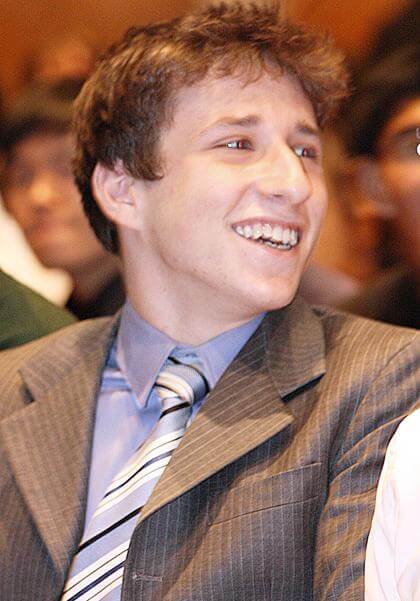By Anna Gustafson
At age 17, Forest Hills resident David Shuster is already changing the face of cancer research.
Shuster, a senior at the Bronx Science High School, was one of 300 students across the nation to be named a semifinalist in the prestigious Intel Science Talent Search Competition Jan. 14 for his research project on the Ebp1 protein.
For more than a year, Shuster has spent many hundreds of hours working on his project, titled “Ebp1 is required for cellular proliferation of glioma cells and modulates the Ras−ERK signaling pathway.”
Shuster’s research into this cellular protein has led to a conclusion that could have massive implications for doctors and brain cancer patients.
“We think if we can silence this protein, Ebp1, we could delay tumor growth,” Shuster said.
Shuster is one of 12 Queens pupils and one of six students from the Bronx Science High School to be named a semifinalist in the Intel competition. Shuster was one of 300 students selected from 1,608 entrants representing 495 high schools in 46 states, the District of Columbia, Puerto Rico and five overseas schools.
Each semifinalist received a $1,000 award and has the chance to become one of 40 finalists who will travel to Washington, D.C., to compete for the final prize of $100,000.
Shuster, who has had an interest in science since he was young, knew after his freshman biology class that he wanted to conduct cancer research. He spent three months searching for a mentor for his study and finally found Dr. Massimo Squatrito, a researcher at Memorial Sloane Kettering Cancer Center.
“I felt it was a really great experience to be exposed to techniques a lot of people don’t really see until grad school,” Shuster said of his work with Squatrito.
Shuster is hoping to attend a top research university, such as Dartmouth, Brown, Vanderbilt or Emory.
“In college, I think I’ll try to major in biology, but I’d like to stay in neuroscience research,” Shuster said. “I don’t know if I’ll keep looking at this specific pathway, but I definitely want to stay in research.”
Besides his contributions to cancer research, Shuster is the vice president of Key Club International, a club that specializes in community outreach, and is the editor for “Reactions,” a physical science journal.
The Intel Science Talent Search is one of the most prestigious competitions in the United States and winners have gone on to make many contributions to the field of science. Intel winners have won seven Nobel Prizes, three National Medals of Science and three Fields Medals.
Reach reporter Anna Gustafson by e−mail at agustafson@timesledger.com or by phone at 718−229−0300, Ext. 174.



































